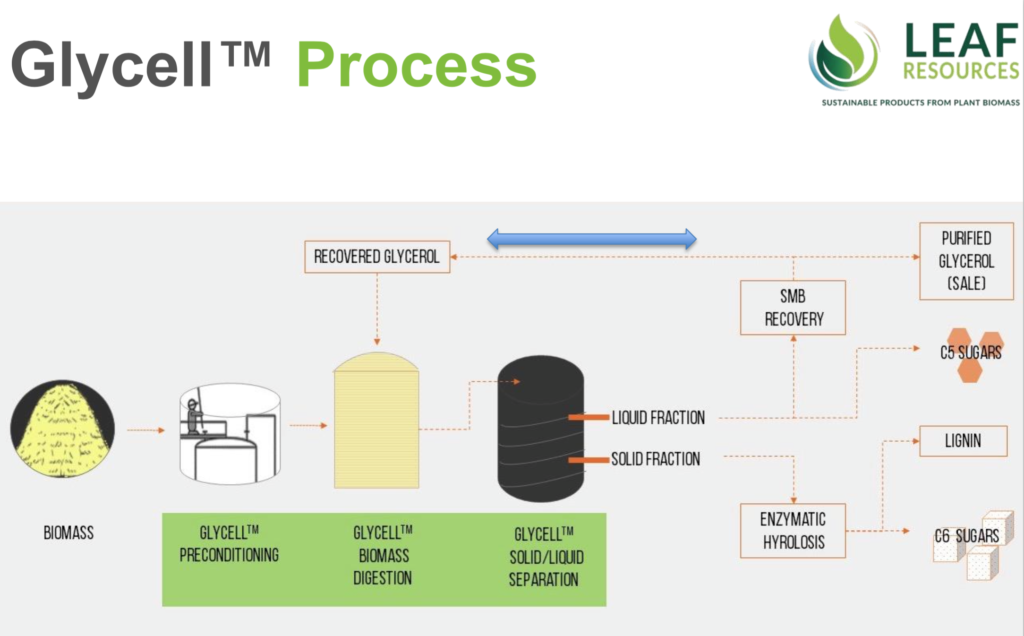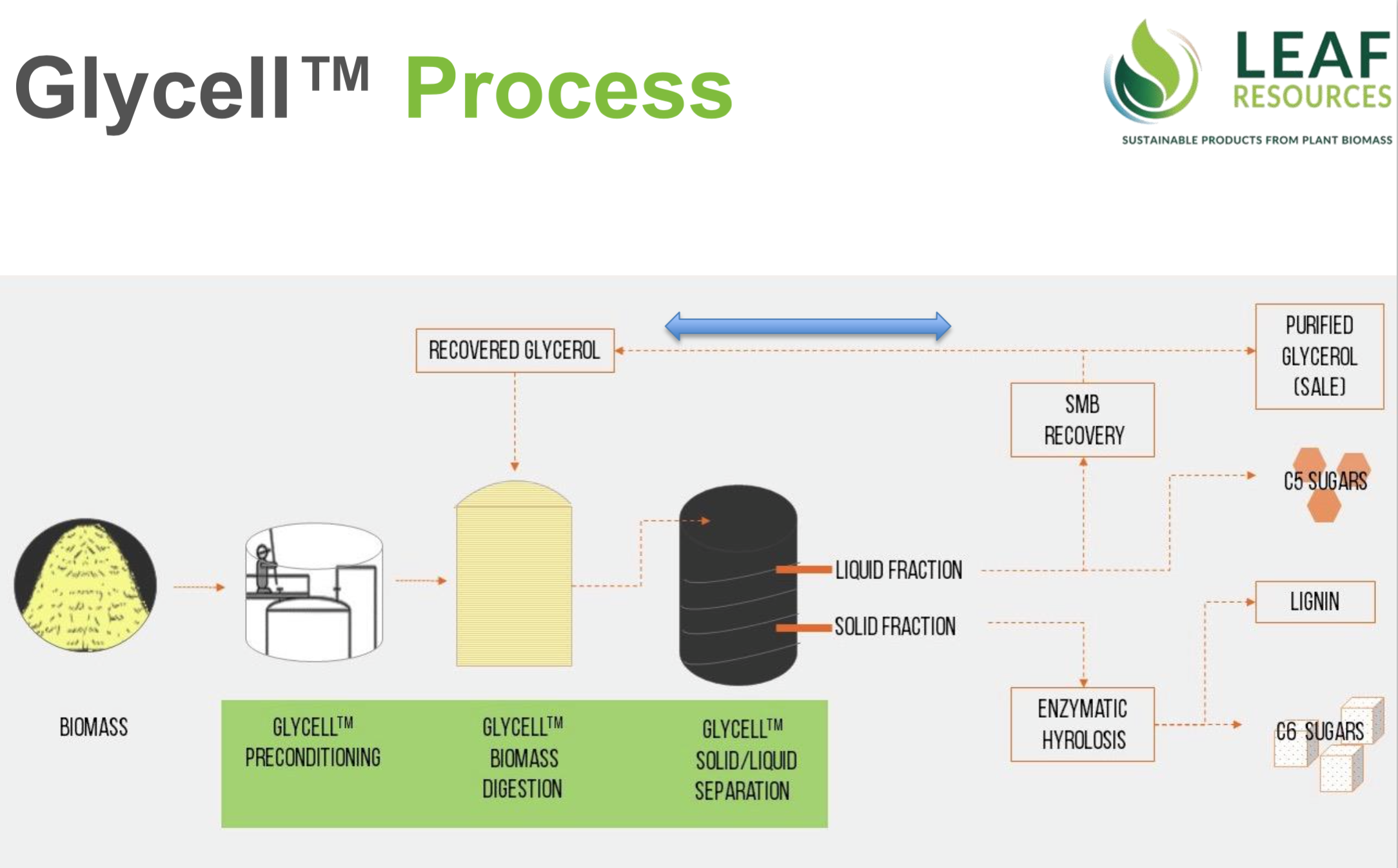I had an interesting interview with Australia-based Leaf Resources regarding their biomass pre-treatment technology called Glycell, which uses glycerol as a reagent, in order to break down plant biomass into lignin, cellulose and hemicellulose at low temperature and pressure. Leaf Resources recently announced a joint venture called Leaf Development LLC with Claeris LLC of Dallas, Texas, which aims to develop up to five renewable chemical projects by building a biorefinery using Leaf Resources’ Glycell process.

Claeris will be engaged to manage Leaf Development on a day-to-day basis and carry the responsibility for all aspects of project development, including:
▪ Project site sourcing
▪ Feedstock supply arrangements
▪ Product offtake arrangements
▪ Regulatory permitting
▪ Engineering, procurement, and construction tenders and award
▪ Project capital/funding
▪ Overall project and delivery management
Leaf Resources will provide a license for its Glycell process for the five projects and technical expertise as required. The company will also provide ongoing funding for Leaf Development in return for increased equity partnership for up to 75%. Initial funding of $750,000 will be met from Leaf Resources’ internal sources. If Leaf Developments meet specified project milestones, a further $1 million may be due on 31 October 2016. These funds will be used by Leaf Development for permitting, engineering, management, consulting fees, and other costs relating to the development of commercial-scale projects.
Claeris will invest up to $500,000 in Leaf Resources at an issue price of AUD$0.125/share and will also be issued around 1,560,000 options in Leaf Resources at an exercise price of $0.1375. The options have a five-year term, with one-third vesting each year after issue.
The parties believe a facility a feedstock capacity of 100,000 bone dry tonnes per year make economic and technical sense although the scale of the first facility is yet to finalized.
According to Leaf Resources, its Glycell process can produce cellulosic sugars at under $50/ton when co-products are included. This is compared with $220/ton for sugars produced from conversion of corn starch, and $280/ton for raw sugar.
My interview with Leaf Resources and analysis of the Glycell process will be published later this month at Tecnon OrbiChem’s Biomaterials newsletter Issue 36. I am also working on my presentation about the glycerine market for the incoming ICIS Pan American Oleochemicals conference in October (in Miami) so this information will fit in perfectly.




